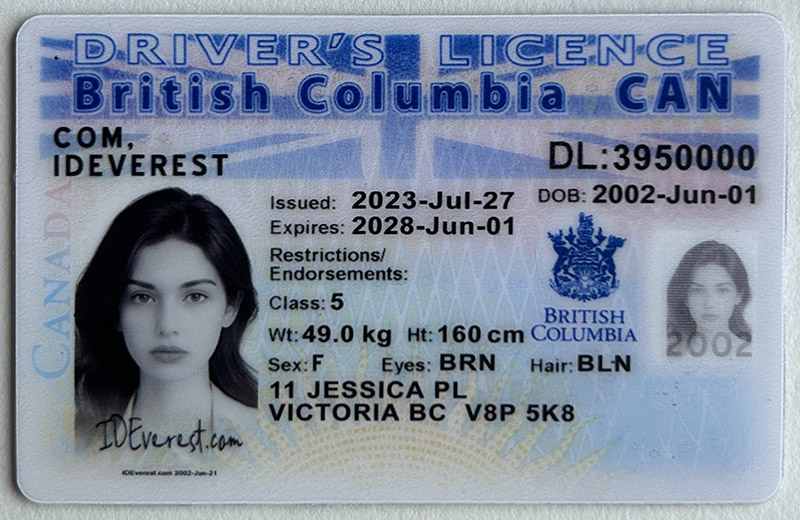Products Description
Outline of the Article
- Introduction
- Overview of British Columbia fake ID issue
- Importance of understanding the legal implications
- H1: What is a Fake ID?
- H2: Definition of a Fake ID
- H2: Common Uses of Fake IDs
- H2: The Rise of Fake ID Usage in British Columbia
- H1: The Legal Landscape in British Columbia
- H2: British Columbia’s Laws on Fake IDs
- H3: Legal Consequences of Using a Fake ID
- H3: Penalties for Producing Fake IDs
- H2: The Role of Law Enforcement in Curbing Fake ID Usage
- H1: The Market for Fake IDs
- H2: Online Sources for Fake IDs
- H3: How Fake IDs are Made
- H3: The Cost of Obtaining a Fake ID
- H2: Risks of Buying Fake IDs Online
- H1: Impact of Fake IDs on Society
- H2: Consequences for Individuals
- H3: Criminal Record Implications
- H3: Impact on Education and Career
- H2: Broader Impacts on Society
- H1: How to Identify a Fake ID
- H2: Tips for Spotting a Fake ID
- H3: Common Signs of a Fake ID
- H3: What to Do If You Encounter a Fake ID
- H1: Preventive Measures and Solutions
- H2: Government Initiatives
- H2: Educational Campaigns in Schools and Universities
- H2: Technological Solutions to Detect Fake IDs
- H1: Conclusion
- Summary of key points
- Final thoughts on addressing the fake ID issue in British Columbia
- FAQs
- What are the most common consequences of using a fake ID in British Columbia?
- How do law enforcement agencies detect fake IDs?
- Can minors face jail time for using a fake ID?
- Are there any legal ways for minors to access restricted areas or services?
- What should someone do if they are caught using a fake ID?
British Columbia Fake ID: Understanding the Risks and Legal Implications
Introduction
In recent years, the use of fake IDs in British Columbia has become a growing concern. Whether it's for underage drinking, entering age-restricted venues, or other purposes, the allure of a fake ID can be tempting for many. However, the consequences of using or possessing a fake ID in British Columbia are severe, with significant legal implications. This article delves into the issue, exploring the legal landscape, societal impacts, and the broader implications of fake ID usage in the region.
What is a Fake ID?
Definition of a Fake ID
A fake ID is an identification document that has been altered or fabricated to misrepresent an individual's age or identity. These IDs are often used by underage individuals to gain access to age-restricted services like alcohol purchases, gambling, or nightclubs.
Common Uses of Fake IDs
The most common use of fake IDs is to bypass age restrictions, particularly for purchasing alcohol or gaining entry to bars and clubs. Additionally, some may use fake IDs for more illicit purposes, such as engaging in fraudulent activities or avoiding legal penalties.
The Rise of Fake ID Usage in British Columbia
In British Columbia, there has been a noticeable increase in the use of fake IDs. This rise can be attributed to the growing availability of these documents online, as well as a perceived leniency in enforcement among younger individuals. As technology advances, the quality of fake IDs has improved, making them harder to detect and contributing to their increased popularity.
The Legal Landscape in British Columbia
British Columbia’s Laws on Fake IDs
British Columbia has strict laws regarding the possession, production, and use of fake IDs. Under the provincial law, it is illegal to use a fake ID to misrepresent one’s age or identity. This offense can lead to serious legal consequences, including fines and criminal charges.
Legal Consequences of Using a Fake ID
Using a fake ID in British Columbia can lead to various penalties, depending on the situation. For minors, being caught with a fake ID can result in a fine, a mark on their criminal record, and possible community service. For adults, the consequences are even more severe, potentially leading to jail time, especially if the ID was used to commit fraud or other crimes.
Penalties for Producing Fake IDs
The production of fake IDs is considered a serious offense in British Columbia. Individuals caught creating or distributing fake IDs can face hefty fines, long-term imprisonment, and a permanent criminal record. Law enforcement agencies actively pursue those involved in the creation of fake IDs, recognizing the broader implications for public safety and legal integrity.
The Role of Law Enforcement in Curbing Fake ID Usage
British Columbia’s law enforcement agencies have implemented several measures to curb the use of fake IDs. These include increased checks at bars, clubs, and liquor stores, as well as training for staff to better identify fraudulent identification. The use of advanced technology, such as scanners and verification tools, has also been crucial in detecting fake IDs.
The Market for Fake IDs
Online Sources for Fake IDs
The internet has become a major source for obtaining fake IDs. Numerous websites and vendors, often operating from outside of Canada, offer to produce and sell fake IDs that closely resemble legitimate documents. These online sources make it easy for individuals to obtain fake IDs, with transactions often conducted through encrypted communication channels and payments made using cryptocurrencies.
How Fake IDs are Made
Creating a fake ID involves sophisticated methods that replicate the appearance of genuine documents. High-quality printers, advanced software, and specialized materials are used to produce IDs that can pass initial scrutiny. Holograms, barcodes, and other security features are often included to make these fake IDs appear authentic.
The Cost of Obtaining a Fake ID
The cost of a fake ID can vary depending on the quality and the source. Typically, a high-quality fake ID that includes advanced security features can cost anywhere from $100 to $300. However, this price does not account for the potential legal costs and consequences if the individual is caught.
Risks of Buying Fake IDs Online
Purchasing a fake ID online carries significant risks. Many online vendors are fraudulent, taking money without delivering the product. Even if the ID is delivered, there is always the risk of interception by law enforcement, leading to legal consequences. Additionally, the personal information provided to these vendors can be misused for identity theft or other criminal activities.
Impact of Fake IDs on Society
Consequences for Individuals
The use of a fake ID can have long-lasting consequences for the individual involved. Beyond the immediate legal penalties, the long-term implications include a criminal record that can affect future employment, education opportunities, and even travel.
Criminal Record Implications
A criminal record for using a fake ID can have far-reaching impacts, particularly for young adults who are just starting their careers. Employers often conduct background checks, and a criminal record can be a significant barrier to gaining employment in many fields.
Impact on Education and Career
For students, a criminal record can lead to suspension or expulsion from educational institutions. Additionally, certain professions, particularly those in law, finance, and healthcare, may be off-limits to individuals with a criminal record, severely limiting career opportunities.
Broader Impacts on Society
The widespread use of fake IDs also has broader societal implications. It undermines the legal drinking age, contributing to underage drinking and its associated risks. Moreover, the production and distribution of fake IDs are often linked to organized crime, further exacerbating societal issues.
How to Identify a Fake ID
Tips for Spotting a Fake ID
Identifying a fake ID requires attention to detail. Several signs can indicate a fraudulent document, and being aware of these can help prevent illegal activity.
Common Signs of a Fake ID
Common indicators of a fake ID include:
- Discrepancies in font or spacing on the ID.
- Misspellings or grammatical errors in the text.
- Inconsistent photo quality or alignment.
- Lack of holographic elements or incorrect holograms.
- Unusual card thickness or texture.
What to Do If You Encounter a Fake ID
If you suspect someone is using a fake ID, it is important to handle the situation carefully. For business owners or staff, refusing service and notifying law enforcement is recommended. For individuals, it’s advisable to report the incident to the authorities to prevent further misuse.
Preventive Measures and Solutions
Government Initiatives
The British Columbia government has taken several steps to address the fake ID issue. These include stricter enforcement of age-related laws, increased penalties for offenders, and the implementation of new technologies to detect fake IDs more effectively.
Educational Campaigns in Schools and Universities
Education is a key component in reducing the use of fake IDs. Schools and universities across British Columbia are increasingly incorporating educational campaigns that highlight the risks and legal consequences of using fake IDs. These initiatives aim to deter students from considering fake IDs as a viable option.
Technological Solutions to Detect Fake IDs
Technological advancements are playing a crucial role in combating fake IDs. Businesses and law enforcement agencies are adopting new tools, such as barcode scanners and hologram detectors, to more accurately verify the authenticity of IDs. These technologies are becoming more widespread and are an essential part of the strategy to reduce fake ID usage.
Conclusion
The issue of fake IDs in British Columbia is multifaceted, affecting not only the individuals involved but also society as a whole. The legal consequences are severe, and the long-term implications can be devastating. While the allure of a fake ID may seem tempting, the risks far outweigh any perceived benefits. Through a combination of law enforcement efforts, educational campaigns, and technological advancements, British Columbia is working towards reducing the prevalence of fake IDs and mitigating their impact on society.
FAQs
- What are the most common consequences of using a fake ID in British Columbia?
- The most common consequences include fines, criminal charges, a potential criminal record, and community service.
- How do law enforcement agencies detect fake IDs?
- Law enforcement uses various methods, including ID scanners, hologram detectors, and trained personnel to spot discrepancies.
- Can minors face jail time for using a fake ID?
- Yes, in severe cases, minors can face jail time, especially if the fake ID was used to commit fraud or other crimes.
- Are there any legal ways for minors to access restricted areas or services?
- No, minors must wait until they are of legal age to access age-restricted areas and services. Attempting to circumvent these laws with a fake ID is illegal.
- What should someone do if they are caught using a fake ID?
- If caught using a fake ID, it’s important to cooperate with law enforcement. Seeking legal advice immediately is also recommended to navigate the potential legal consequences.
Tags: British Columbia fake ID
You like
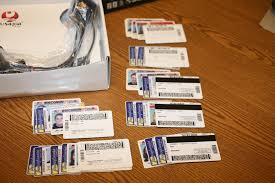
Canada-British Columbia DLFake
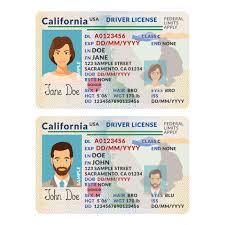
CalifomiaFake ID
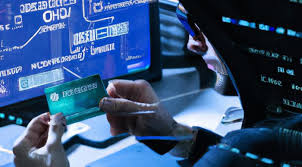
Canada-Ontario DLFake ID
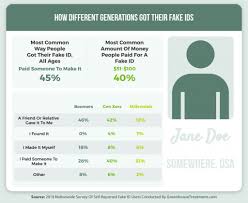
GeorgiaFake ID

